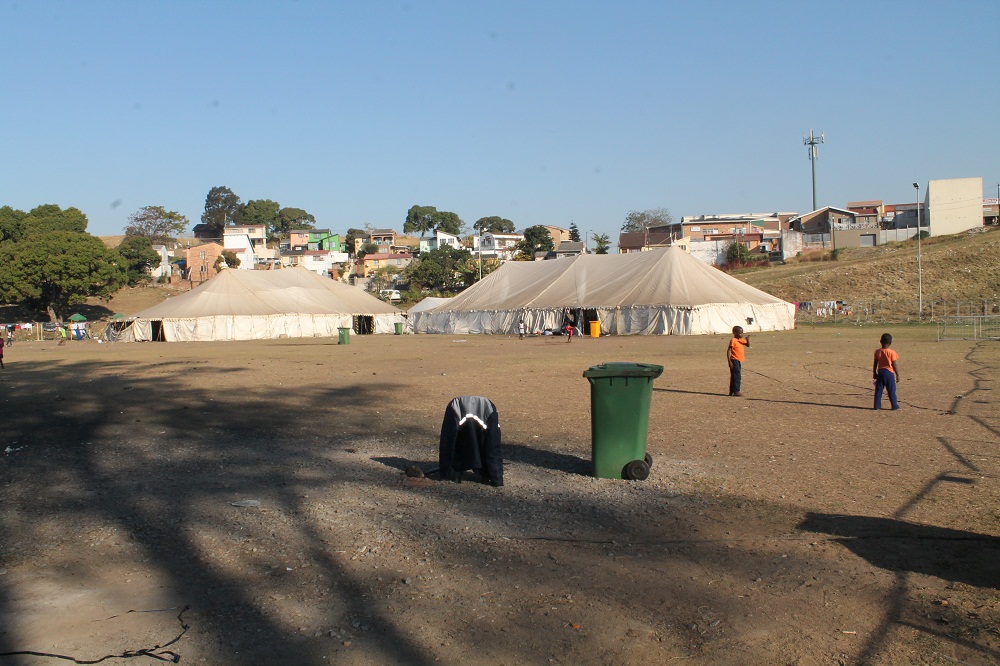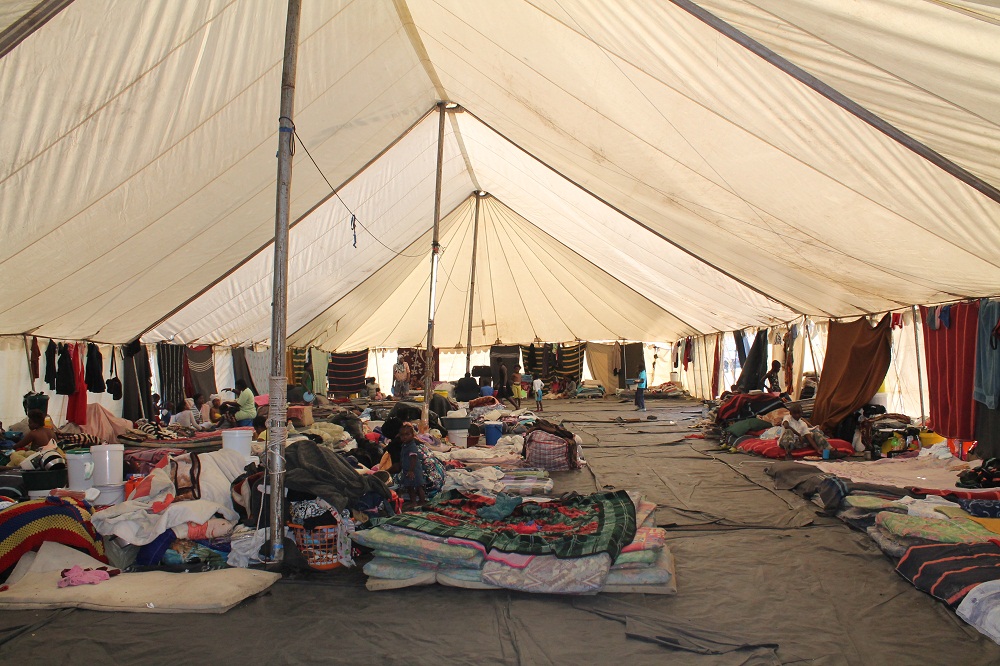The Chatsworth refugee camp for people displaced by the recent xenophobic violence in Durban is set to close on Tuesday, a move that could leave the 212 Burundian and Congolese men, women and children who remain, unwilling or unable to return to their conflict-ridden countries, with no option but to return to the communities that expelled earlier them. QINISO MBILI paid the camp a visit last week.
Only three tents remain in the Chatsworth camp to house the refugees. The yard is dotted with dead fireplaces and, besides two clearly bored security guards on their phones at the gate, there is almost no one to be seen at the camp. From a distance, the clothes hanging from the fence are the only sign of life.
More facilities have been added to the camp since the last time The Daily Vox visited. There are about six more bathrooms, four water taps, a children’s playpen and the tents have electricity. The refugees will lose access to all these facilities when the camp closes.
Inside one of the tents, a dozen men are watching an African movie from a small laptop computer while others sleep on mattresses scattered around the tent. A few others have gathered around a spiral stove and are cooking what seems to be beans.
Emile Ntahonvukiye is a 42-year-old husband and father of six children, four of whom have been missing school for the past three months. He and his family moved to the Chatsworth camp when the Isipingo camp, where he had initially fled following the xenophobic violence, closed down. Like many others, does not know what will happen to him and his family on Tuesday when the camp closes.
Ntahonvukjye’s parents were fatally shot in Burundi and he escaped the country in 2006. That war is still raging back home, and in South Africa, he was attacked earlier this year, as well as in the 2008 xenophobic violence. Still traumatised, he swears to never return to either the community here or to Burundi.
All Ntahovukjye wants is for the UN High Commission for Refugees (UNHCR) to help this family relocate to a third country. However, his attempts to contact the UNHCR have been unsuccessful.
“Life is hard and as a man, your dignity is reduced to nothing in this barren camp but I have absolutely no choice,†said Ntahonvukiye.
Whether Ntahonvukiye returns to the community that attacked him and his family, hazards a return to Burundi or somehow makes his way to another country, it will be a hard slog to replace everything he lost in the violence. Many of those who managed to save their personal property in the looting that was a feature of the xenophobic violence, have since been forced to sell their belongings to make ends meet.
The eThekwini Municipality claims the situation in the communities has been stabilised, which is why it will be closing the camp on 30 June.
“African immigrants at the shelter have been offered an option of being reintegrated into the communities they once lived in, while others have requested to be repatriated to their countries of origin,†said eThekwini Municipality head of communications, Tozi Mthethwa, in a statement to The Daily Vox.
Mthethwa noted that the situation camp was being closed because the situation had “normalised†and “stabilisedâ€; however the muncipality did not respond to questions about what would happen to the immigrants who could neither reintegrate nor repatriate.
But there seems to be a difference in the way refugees feel about their situation compared to the officials.
Durban newspapers reported that a Somali-owned business was set alight and shots were fired into the premises a few weeks ago in Cato Crest. In a separate incident in Cato Crest, an Ethiopian trader was reportedly killed around the same time. This happened in the midst of more than 10Â 000 Operation Fiela arrests throughout the country.
Over the past few months, three camps in KwaZulu-Natal have housed more than 5,000 refugees over the past few months. After the closure of the two other camps, thousands of migrants have been repatriated, and others have been reintegrated into communities in the province. But the remaining 212 face an uncertain future.

![IMG_1109 [slider]](https://www.thedailyvox.co.za/wp-content/uploads/2015/06/IMG_1109-slider.jpg)










